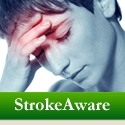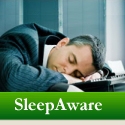What is obstructive sleep apnea?
Obstructive sleep apnea – or OSA – is severely restricted airflow that pauses breathing during sleep, sometimes several times a night. It’s one of a spectrum of adult and pediatric sleep-disordered breathing conditions caused by narrowing or blockage in the upper respiratory tract (mouth, nose, and throat).
The “apnea” in sleep apnea refers to a breathing pause that lasts at least 10 seconds. OSA occurs when the muscles in the back of the throat fail to keep the airway open, despite efforts to breathe.
Sleep-disordered breathing progresses over time — from snoring with little to no airway restriction, to obstructive sleep apnea with complete collapsed airways. Another form of sleep apnea is central sleep apnea, where the brain fails to properly control breathing during sleep.
Learn about Inspire® sleep therapy:
For people with sleep apnea, the combination of disturbed sleep and oxygen starvation may lead to a variety of potentially serious conditions, including:
More than 18 million American adults have sleep apnea. OSA occurs in all age groups and both sexes.
What are the risk factors for OSA?
- Being age 40 or older
- Being overweight
- Having a large neck size (17 inches or larger in a man, or 16 inches or larger in a woman)
- Having a large tongue, tonsils, or uvula (the flap of skin that hangs down in the back of your throat
- Having a recessed (set back from the rest of the face) chin
- Having a small upper airway
- Small jaw or a large overbite (front teeth that rest far in front of the bottom teeth, when your mouth is closed naturally)
- Smoking or drinking alcohol
Treatment for obstructive sleep apnea depends on the cause, which may happen at different levels in the upper airways at the same.
What are the causes of obstructive sleep apnea?
- Chronic nasal allergies
- Deviated septum (the bone and cartilage that separates the nostrils)
- Enlarged tonsils, adenoids (glands in the roof of the mouth), uvula (the tissue that hangs down in the back of your throat), or tongue
- Excessive tissue in the airways
- Facial or skull abnormalities related to the jaw, palate, or head shape
- Fat in the airways due to obesity or extra weight
- Small airways
You may have a medical condition if a loved one says you snore loudly, make gasping or choking noises, or are restless during sleep. If you experience these symptoms, visit with one of the University of Miami Health System's sleep medicine specialists today.
What are the treatments for OSA?
CPAP and BiPAP Therapies
Continuous positive airway pressure (CPAP) therapy is a breathing machine that constantly pushes air through the nose, or nose and mouth, to keep the airways open while you sleep. The therapy involves a variety of masks and pressure settings based on your specific needs. CPAP is a very effective non-surgical treatment for obstructive sleep apnea. Modern devices are small, quiet, and more comfortable than older versions.
For people with difficulty exhaling using CPAP machines, bilevel positive airway pressure (BiPAP) therapy can help. BiPAP breathing machines use bilevel pressure, or one level for inhalation and a lower level for exhalation, making it easier to breathe.
Medicine
Depending on your condition, your doctor may prescribe medicines to reduce symptoms that make it even harder to breath. These can include nasal spray decongestants to thin mucus or corticosteroids to reduce inflammation.
Myofunctional Therapy
Myofunctional therapy for obstructive sleep apnea includes a variety of therapies and behavior modifications to open airways and improve breathing. A certified myofunctional therapist teaches you exercises to strengthen or retrain muscles in the face and mouth, and helps you stop bad habits, like improper head position while you sleep. It is also used after surgery, such as maxillomandibular advancement or frenuloplasty for tongue-tie.
Oral Devices
Mild forms of obstructive sleep apnea may respond to devices you put in your mouth to improve airflow while you sleep. Some customized devices can help align the jaws or keep the tongue from falling into the throat.
Sleep Surgery
Sleep surgery for obstructive sleep apnea may be a first line treatment or an option after other treatments fail. The type of surgery you need depends on where and why the obstruction happens, and patient age. In children, removing the tonsils and/or adenoids is usually enough to make more room in the airways.
For adults, types of sleep surgery may include:
- Hypoglossal nerve stimulation also known as Inspire sleep therapy
- Hypopharyngeal surgery (upper airway stimulation or genioglossus advancement)
- Nasal surgery (septoplasty or endoscopic sinus surgery)
- Palate surgery (uvulopalatopharyngoplasty)
- Facial skeletal surgery (maxillomandibular advancement)
Weight Loss
Obesity and extra weight can cause or worsen symptoms of obstructive sleep apnea by adding pressure to the upper airway system. Our sleep medicine teams can help you reach optimum health with exercises, nutritional counseling, and behavioral health services.
How do you test for OSA?
Sleep Endoscopy
Sleep endoscopy, also called drug-induced sleep endoscopy, is a minimally invasive procedure that allows the doctor to see what’s happening in the upper airways while you’re sedated. It involves inserting a thin, flexible tube with a camera through the nose to view the degree of collapse at different levels of the airway. The procedure is performed in an operating room as an outpatient (no overnight hospital stay) and takes about a day to recover.
Sleep Study
An adult or pediatric sleep study (also called polysomnography) is performed in our sleep clinic. While you sleep, we collect information such as breathing patterns, blood oxygen levels, brain wave activity, muscle tone, heart rhythm, and eye movements. This information is captured using small, painless electrodes attached to your body and elastic bands around your chest and abdomen.
Because we’re open 24/7, we offer a variety of studies including:
- Maintenance wakefulness test (MWT): measures how alert you are during the day
- Multiple latency sleep test (MSLT): a test that checks your daytime sleepiness by monitoring how quickly you fall asleep in a quiet, daytime environment
- Round-the-clock, all-night continuous positive airway pressure (CPAP): a breathing machine that constantly pushes air through the nose, or nose and mouth, to keep the airways open while you sleep
Why Choose UHealth?
State-of-the-art testing and expert diagnosis for children and adults. Our sleep medicine specialists perform sleep endoscopies and a variety of sleep studies. Sleep studies take place 24/7 in our comfortable, state-of-the-art facilities with an expert staff. This means we get accurate results, so we can provide the best treatment possible for your specific condition.
Innovative non-surgical and surgical therapies for obstructive sleep apnea. We offer comprehensive therapies to treat obstructive sleep apnea, including myofunctional therapy, minimally invasive upper airway stimulation, and endoscopic sinus surgery. You have access to a variety of treatments all in one place.
Experienced surgical team. If your obstructive sleep apnea requires surgery, you can be confident in our board-certified pediatric and adult sleep medicine surgeons. You receive the right expertise and the right procedures for your condition. We also combine procedures to make life easier for you.
StrokeAware: Get Informed About Strokes

Stroke is the third leading cause of death in the U.S. and the leading cause of serious, long-term, adult disability. Each year, over 700,000 people have a stroke; 75% of these are first attacks. Knowing the warning signs and acting quickly are our best defenses against Stroke.
SleepAware: Snoring Is More Than An Annoyance, It's A Warning

Approximately 18 million Americans have obstructive sleep apnea (OSA) and 10 million are undiagnosed. More than 50% of Americans over the age of 65 have a sleep problem. Those with untreated OSA face a risk of heart attack or stroke that is up to four times greater than those who are not afflicted.
Questions? We're here to help.
Our appointment specialists are ready to help you find what you need. Contact us today.